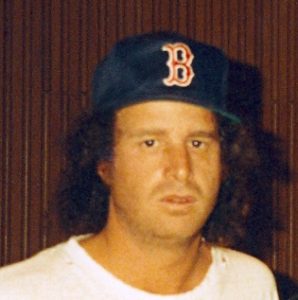by James Scott Bell
@jamesscottbell
 “Build a better mousetrap, and the world will beat a path to your door.” That old chestnut is usually attributed to Emerson, who actually put it this way:
“Build a better mousetrap, and the world will beat a path to your door.” That old chestnut is usually attributed to Emerson, who actually put it this way:
“If a man can write a better book, preach a better sermon, or make a better mousetrap than his neighbor, you will find a broad hard-beaten road to his house.”
We would all like to believe that readers will beat a path to Amazon—or a local bookstore—to read “better books.” It’s true that doesn’t always happen; or, at least, as often as it should. But the odds are better with “better.” We can always improve our writing, which is one of the things I love about the craft. And that’s what we talk about most here at TKZ. Today I want to talk about what you as a human author (as opposed to AI!) bring to the table. It springs from the concept of what businesses call a Unique Selling Proposition (USP).
The USP is that factor or consideration presented by a seller as the reason their product or service is different from and better than that of the competition.
With so many products out there in every category, consumers are looking for the best bang for their buck, and the best (e.g., most efficient, most convenient, most entertaining, etc.) product available.
Someone bringing a new product to market has to find a way to make it stand out from other products in its category.
But if I try to sell a mousetrap that’s just like all the others, how can I expect to win over new customers?
Or readers, who have an overwhelming amount of content to choose from. You as an author need to give them a reason to choose you.
Every author needs a Unique Writer Proposition––UWP.
Think of it this way. Say you’re a reader who loves detective novels and your favorite writer is Michael Connelly. You don’t really analyze why you dig Connelly, you just know that at the end of one of his books you’ve had an experience you want to repeat.
Now here comes Benny Wannabe, a new author, who is putting up his own detective novels for sale. When you read one, nothing about it really stands out. You finish it, and it’s okay, but you are not left with the feeling you have when you read Connelly.
How likely are you to go seeking out Wannabe’s other books?
Thus, I propose that you become more purposeful about developing a UWP.
- Look Within
When I started out in traditional publishing, the buzzword brand was just coming into fashion. Every author was supposed to have one, because that’s how publishers sold them to bookstores, and bookstores to readers.
My brand at the beginning was as a lawyer writing legal thrillers. There were only about nine million other authors with the same profile. At a brainstorming session with some other writers, where we came up with taglines for our brand, I took the title of F. Lee Bailey’s autobiography, The Defense Never Rests, and changed it to, The Suspense Never Rests. That would be my goal: total, page-turning suspense.
Next, I asked what I burned with. What is that fuels my inner fire? The answer came: injustice. I hate it, I loathe those who traffic in it, and ache for the victims of it. So the quest for justice was an obvious add-on to my UWP.
Try this: Ask yourself what type of fiction you most like to read. What is it about those books that attracts you? Is it fast-moving plots? Colorful characters? Lean prose, or beautiful style? Then ask what gets your blood pumping. How will you integrate that into your fiction?
- Added Value
Now look at your work and ask yourself three questions:
- What do I do well?
- What can I do better?
- What are my unique “add ons”?
I did this twenty years ago. I decided what I did pretty well was plot and dialogue. What I needed to do better was character and scenes. So I instituted a self-study program in both areas.
What were some of the things I brought to my fiction that were particular to me? I found:
- A bit of humor mixed in with the suspense (a la my favorite director, Alfred Hitchcock).
- Entertaining minor characters.
Ask this: What do you bring to your writing that is a distinctive? What is your “personality on the page”?
- Deliver the Goods
Once you have determined your own UWP (and it’s good to write it down in 100 words or less, and tweak it from time to time), you have a model to shoot for. You write your book and revise the draft, keeping these things in mind.
Look at the seven critical success factors of fiction—plot, structure, characters, scenes, dialogue, voice, and meaning (or theme). Make it your goal to improve in each of these areas in a year’s time. It’s not a daunting task to spend a few weeks of self study in each area.
Picture this: As you write, keep a picture in your mind of a tired mother or father, a busy professional, an overextended student. They have a small window of time for reading pleasure and they’ve picked up your book.
Be unique. For them.
What is something about your writing that is unique or personal to you?
[This post is adapted from The Mental Game of Writing.]


